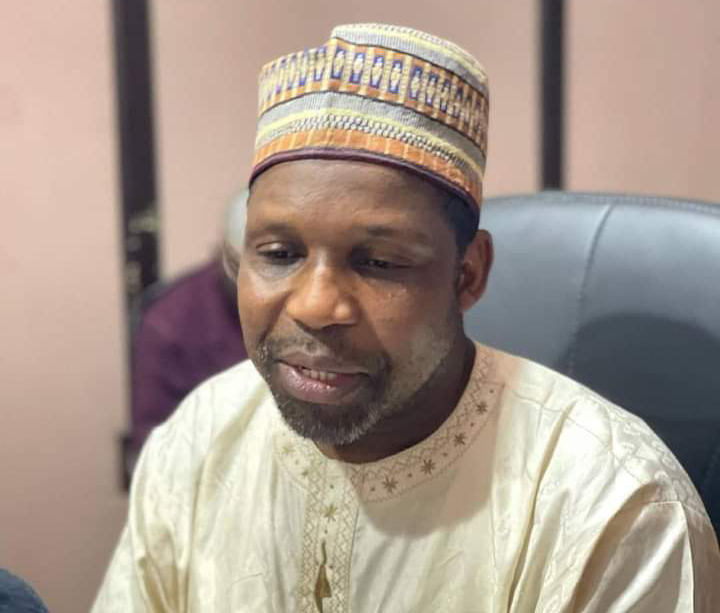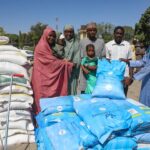The Kano Literacy and Maths Accelerator (KALMA) programme was an educational programme organised through a collaboration by the Foreign, Commonwealth and Development Office (FCDO), Teaching at the Right Level (TaRL) Africa and the British Council.
The programme was funded through UK Aid and aimed to improve literacy and numeracy among primary four to primary six pupils the Right Level approach in Kano State, Nigeria. In this interview, Dr Danlami Hayyo, chairman of the board, speaks more on it.
What is KaLMA?
By piloting the Teaching at The Kano Literacy and Maths Accelerator (KALMA) pilot project was launched in October 2019 by the Kano State Universal Basic Education Board, Ministry of Education, and Sa’adatu Rimi College of Education in collaboration with the British Council and Teaching at the Right Level (TaRL) Africa with funding from the Foreign, Commonwealth and Development Office (FCDO). The programmes focus was to build foundational Maths, Hausa, and English literacy skills for over 37,000 Primary 4 to Primary 6 pupils in two entire local government areas, Dawakin Tofa and Wudil in Kano State, Nigeria.
What is the Kano State Universal Basic Education Board (SUBEB)?
The State Universal Basic Education Board (SUBEB) is a policy reform measure of the Federal Government of Nigeria, aimed at rectifying distortions in the basic education. The state Universal Primary Education Board (SUBEB), an offshoot of UBEC in the state, is established to address the inequality in educational opportunity at the basic level and improving the quality o f its provision. The policy stipulates that the education shall be free and compulsory.
What is the FCDO?
The Foreign, Commonwealth and Development Office is a department of the Government of the United Kingdom. It was created on 2 September 2020 through t he merger of the Foreign and Commonwealth Office and the Department for International Development.
What is TaRL Africa?
Teaching at the Right Level (TaRL) is an evidence develop basic reading and mathematics-based educational approach that helps children skills, opening doors to a brighter future. TaRL was pioneered by education NGO Pratham and is supported in Sub Saharan Africa, by TaRL Africa and partners.
Can you speak on the British Council?
The British Council is the UK’s international organisation for cultural relations and educational opportunities. They work with over 100 countries across the world in the fields of arts and culture, English language, education and civil society. Each year they reach over 20 million people and engage more than 500 million people online, via broadcasts and publications. Using the UK’s cultural resources, they make a positive contribution to the countries they work with creating opportunities, building connections and changing lives.
What was the background surrounding the creation of the KaLMA Project?
Before the outbreak of COVID19 in March 2020, Kano State was taking measures to address the challenge of equipping children with literacy and numeracy skills. The results from the baseline of this programme, conducted in January 2020, confirmed the important need for foundational skills programmes in upper primary (P4– focused P6): only seven percent of children could read a basic paragraph in their home language Hausa; three percent were able to respond ‘yes’ or ‘no’ to simple written questions in English, and just four percent were able to solve a simple 2 by 2 subtraction problem. In late March 2020, the day before schools closed, a rapid assessment was conducted to assess whether learning gains had been made during the initial KaLMA implementation period. Teachers assessed children, and the data of 6,835 children (a sample of the total target children) was collected across Wudil and Dawakin Tofa. These assessments found that for this set of children the number who were able to read a simple Hausa paragraph had increased by 16 percentage points (pp) over the January March period. The number of children who could answer a simple subtraction sum increased by 23 pp, while the number of children who could answer ‘yes’ or ‘no’ to simple written questions in English increased by 30 pp. The results were similar for girls and boys across all subjects.
What did KaLMA try to achieve and why was it important?
The programme is rooted in the teaching at the right level evidence and approach. This approach involves assessing children on foundational skills and grouping them by learning level rather than age or grade level for two hours per day when they focus on foundational skills in reading and arithmetic. The programme also piloted two innovations: student teacher facilitation and a dual language approach to English learning. The dual language approach to foundational skills in English deploys the children’s home language to assist their learning of an additional one. In KaLMA, Hausa is used as a bridge to learning English. Examples include using the L1 (Hausa) for initial engagement in a task that later transitions to English (L2) or using bilingual flashcards and storybooks. It plays out in the classroom as follows: picture reading focused children first say in Hausa what they see in a picture, for example, a market scene, through a vocabulary activity using the words for basic fruits and vegetables, which activity is then extended into English. Another activity is a wordbuilding game where children are given a set of letter cards to form words in Hausa. They then play the game in English. The consolidated by listening and doing dual language approach is children are given an oral instruction that they have to respond to by performing a related action, e.g., ‘stand up. The activity is first done in Hausa, then in English. What was the biggest Due to COVID-19 obstacle the KaLMA project faced and how did the team overcome it? 19 related school closures, the programme was put on hold from April to December 2020 and resumed in schools in January 2021. During school closures, the KaLMA team pivoted th programme to support the Kano State Government’s endeavours to help children continue learning e from home. A package of remote support including radio broadcasts, text messages, automated voice messages (AVMs), and a tollfree line was developed to provid assistance to families in Wudil and Dawakin Tofa. Home Based Learning (HBL) This also included foundational reading and mathematics worksheets, activity text messages, and ongoing radio broadcasts. Educators were also supported during school closures wi th continuing professional development (CPD) delivered via WhatsApp, text messages, and AVM in Maths and
English. The STEP materials, developed by the British Council, were deployed for the English CPD for their contextual relevance. What was the programme able to accomplish? Foundational Maths, Hausa and English Literacy skills were provided for 37,000 Primary 4 (P4) to Primary 6 (P6) pupils in Dawakin Tofa and Wudil LGAs in Kano state. KaLMA also supported the state government in its educationinemergenc y response. This included repurposing KaLMA materials, as well as existing British Council, TaRL Africa and other open education resource materials, to suit the delivery of remote learning to the home environment . KaLMA also provided training and capacity building support for 1,196 teachers, 255 head teachers, 181 schools within two LGAs, 96 student teachers, 50 school support officers and 33 master trainers. Now that the programme is over, what comes next? The KaLMA project will live on in a continuation Nigeria (PLANE)” Project named the ”
Partnership for Learning for all in For more information on the KaLMA project: https://www.britishcouncil.org.ng/kalma

 Join Daily Trust WhatsApp Community For Quick Access To News and Happenings Around You.
Join Daily Trust WhatsApp Community For Quick Access To News and Happenings Around You.


